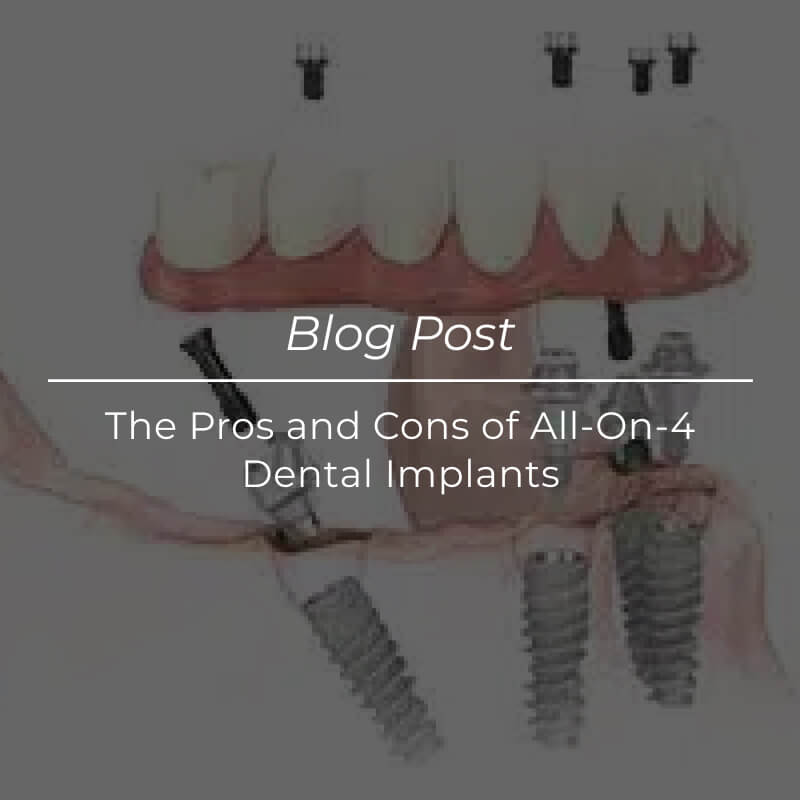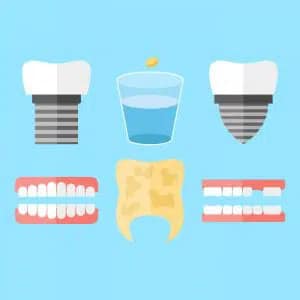-
Mon- Sat 08:00-18:00
-
Call Us Now 1300 99 1300

A large number of people have dental worries ranging from serious dental diseases to tooth decay. While many dental issues do not affect a person’s quality of life significantly, some dental problems can drastically affect a person’s capacity to eat and communicate.
One such situation is called edentulism, or toothlessness. It is a condition where people lose their teeth partially or fully and do not enjoy their food or can hinder a person’s confidence to socialise with other people. While several factors contribute to this condition, patients need a permanent solution to their struggles.
People also face different dental diseases and conditions where they experience losing teeth or struggle with teeth failing issues. Terminal dentition is such a situation where people struggle with failed teeth. It can also damage the health of people if the failed teeth are not removed in time.
Many people experience teeth loss gradually over time for various reasons. Age is a major factor in the gradual loss of teeth, and studies show that one in every five people above 65 years of age struggle with toothlessness in Australia. Even younger people can struggle with accumulated teeth loss, and it can indicate the health-related quality of the life of those people.
While crowns and removable dentures can help people who struggle with toothlessness, most people find those dental devices do not correctly treat their needs. Instead, they prefer dental devices that can be fixed into their mouth and offer a permanent solution to their teeth loss.
Dental implants are a great option for people who want fixed dental teeth replacements. Implants are metal or non-metal screws that can be installed into jawbones to fix crowns or bridges permanently on the jaws. However, every crown needs one implant each, and people who have lost multiple teeth or are struggling with toothlessness should use an equal number of implants for lost teeth.
When considering the pros and cons of dental implants, patients will have their jawbone drilled into based on the number of missing teeth they have, and that can affect the health and strength of their jaws. This is where an innovative treatment procedure called All-on-4 becomes the answer for a full-arch replacement with minimal implants.

All-on-4 is a highly popular treatment option for replacing the teeth in the entire upper or lower row. It is an advanced dental implant procedure where you can get a full-arch of teeth with just four implants. This procedure has been popular since the 1990s, and it has helped thousands of people to have a brighter smile.
This dental procedure has gained increased significance in Australia in recent years due to the alarming number of tooth loss among adults. A recent ABC News report confirms that almost 15.5 percent of adults suffer from severe tooth loss – a situation in which people have fewer than 21 teeth, instead of 32.
Compared to other fixed dental treatment options, All-on-4 is a minimally invasive process and has a high success rate. This treatment offers many benefits compared to other teeth replacement options.
All-on-4 is an innovation in dentistry and provides many benefits to patients.
Most All-on-4 treatments use titanium implants due to their biocompatible properties and excellent durability. It does not produce any toxicity in the human body, nor do they corrode. Compared to other metals, titanium is known for its lightweight properties. It also has non-magnetic properties and ideal for medical examinations.
However, people who are allergic to metals may find that titanium implants are unsuitable. Such people can go for ceramic implants that also have excellent durability and strength. Additionally, ceramic implants come with the natural colour of your teeth, and you will find them to be aesthetically appealing.

During your consultation with your dentist, they will evaluate and confirm whether implants can provide you with results based on your requirements. Your dental specialist will examine your gums, teeth, and jawbone bone density using 3D imaging, a CT scan, and other advanced screening tools.
Our clinics in Templestowe and Toorak that offer dental implants have surgical planning software that makes implant procedures faster and scalable. With the help of those dental tools, your dentist will analyse the quality of your jawbone, including its structure, and determine the areas where the implants to be placed.
Some people may not have the sufficient bone for the All-on-4 procedure. In such cases, dentists will usually provide a bone grafting first, and then proceed with the dental implants. They may also put in small diameter implants, also called mini dental implants, for such patients to ensure the patient gets a complete smile.
During the consultation, your dentist will explain the entire treatment process to you and the desired outcome of it. Let your dentist know about any specific sedation dentistry requirements you have to get a relaxed treatment experience.
On the day of your treatment, your dentist will examine and perform a bone reduction process on your jawbone after a full-thickness flap elevation. The process makes the crest of the jawbone concave shaped, and that helps the implants to fit in the bone perfectly.
The dentist will then drill your jawbone in the areas where the implants need to be inserted. If your bone is soft, the dentist will usually use a soft drill tool to drill your jawbone. Otherwise, they will use a standard jawbone drilling tool or a mix of both. To get the perfect angulation, dentists often use twist drill tools along with precision drilling tools.
In most cases, dentists drill up to 13 millimetres to ensure effective insertion of implants into the jawbone. With the help of a conical connection tool, your dentist will insert the implants into your jawbones. They also use a dental torque wrench with the help of an implant driver RP connection to make the implants tightly fit into your jawbones.
If the orientation of the implants is not perfect, the dentist will adjust it using an abutment conical connection. Once the implants are correctly placed, the dentists will place a suture in the flaps and put healing caps over each implant.
In the second stage, your dentist will take the impressions of your jaw and implants. These impressions, measurements, and models will be sent to a dental lab to prepare dentures for you. Your dentist will then remove the healing caps and put in temporary copings over your dental implants.
After the conversion, your dentists will insert the denture into your mouth and permanently fix it for daily use. Your dentist may check the occlusion and adjust it to ensure that you are getting the perfect bite with respect to the other row of teeth. They will then complete the final torque to ensure your dentures are fixed to your jaw by using the implants.
You can expect some level of pain, swelling, and discomfort in the initial days after the process. If you experience severe discomfort and pain, you should immediately consult your dentist.
Many people will find their All-on-4 implants and bridges to be fully functional and perfectly fit with their teeth. Most people can start their daily duties and responsibilities within 3-4 days.
Dentists usually instruct their patients to consume liquid food in the initial days after their treatment and start eating soft foods, like eggs, fish and pasta, in the later days. They ask their patients not to eat hard food for three months.
After three months, your dentists will review your All-on-4 implant and ensure that it is perfectly integrated into your gums. They will also make any adjustments if needed.
Most people who go for All-on-4 treatment can completely recover within six months. You should note that the procedure has more than a 95 percent success rate.
All-on-4 is an excellent option for people who want full-arch replacements and a confident smile. The fixed dental restoration process has a high success rate and has been a common procedure since the 1990s.
Apart from the aesthetic appeal, they significantly improve the quality of life and dental health. Altogether, All-on-4 is the most practical solution for people experiencing toothlessness.
Toorak’s Care Family Dental clinics are spread across Melbourne and we service patients across Melbourne in areas such as Toorak, South Yarra, Hawthorn, Malvern, Sunshine, Armadale, Doncaster and other surrounding suburbs.








